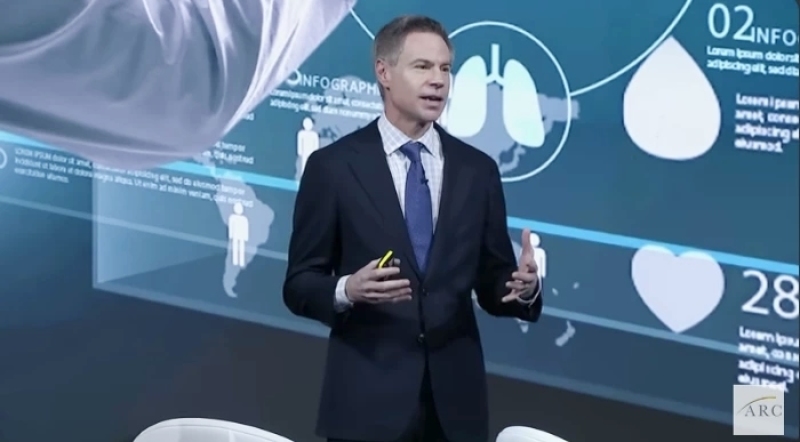
University of Austin professor and author Michael Shellenberger delivered a talk on various AI-related topics at the Alliance for Responsible Citizenship (ARC) 2025 Conference in London on February 18.
During his address, Shellenberger highlighted Japan's ongoing cultural struggles with youth isolation and social issues, while also pointing to the decline of religious belief in the West and its moral implications in the context of AI development.
He noted, “The percentage of Americans with any religious identity has been decreasing, and the numbers are even more dramatic in Europe, where 80 to 90 percent of Europeans don’t believe in God.”
Shellenberger added, “If there's no God to hold you accountable for your sins, why not? The problem with disbelieving in God is not that a person ends up believing in nothing; rather, it’s much worse — he ends up believing anything.”
Shellenberger discussed the post-World War II era, expressing concern that threats to free speech have seemingly grown not from a state of war, but from peace, which has compounded an unprecedented surge among wealthier nations.
“Part of the problem is that we've become so peaceful, the older problems have disappeared,” he stated. “Fewer and fewer of us are dying in foreign wars, fewer of us are killing each other than ever before, a number that just keeps going down, thankfully. And we're all much richer than ever before.”
He remarked on the lack of anticipation for events like Christmas in the West, saying, “There's really hardly anything for kids in the West to look forward to at Christmas time. You can get those gifts all year round. You don't need to delay your gratification. Maybe the problem is that people are not grounded in a solid set of virtues and morality.”
Shellenberger warned that this situation contributes to political ideologies such as “changing someone's gender with drugs and surgeries” or policy approaches that suggest “it's better to let people die on the street from fentanyl than to arrest them for breaking the law.”
He raised concerns about other threats society faces and how AI fits into these dilemmas, stating, “We also face new fantasies, such as the idea that racism is suddenly increasing in society. The media promotes concepts like white privilege, racial hierarchy, whiteness, and white supremacy, causing panic throughout the population without any basis in reality.”
“The biggest victims of this are progressives, particularly progressive women — only 15 percent of whom say they are completely satisfied with their mental health. So, what can be done about it? Can AI play a role?”
Shellenberger also emphasized that these questions are not reserved for the distant future, but are pressing challenges today, particularly following the election of President Donald Trump and his collaboration with Elon Musk and the Department of Government Efficiency (DOGE) to expose waste and corruption within the federal government.
While expressing support for Musk and the DOGE initiative, Shellenberger pointed out the overarching moral questions that technocrats cannot — or should not — have to answer. “I admit Elon Musk is a pioneer of AI. Is he using AI to eliminate fraud, waste, and abuse? Yeah, but the decision about what constitutes waste, fraud, and abuse is a human decision,” Shellenberger explained.
“It’s a subjective question. Are we wasting money by funding sex change surgery in Guatemala, or is that, in fact, a contribution to human flourishing? These aren’t decisions that technologists are going to be able to answer.”

















